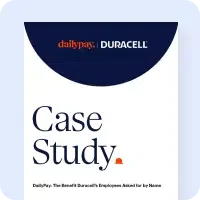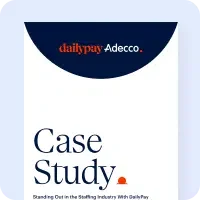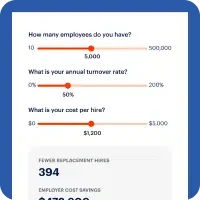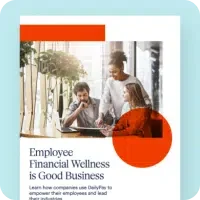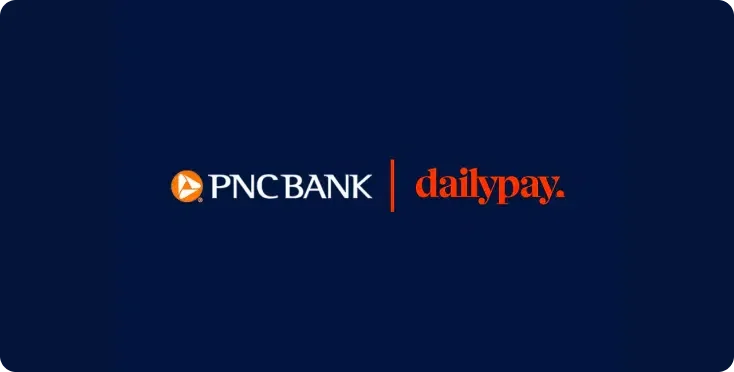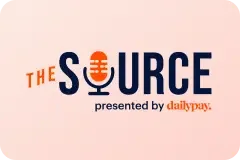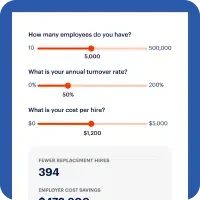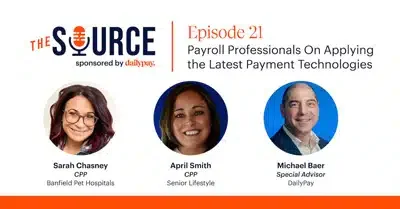New ways to pay workers have taken the economy and payroll operations by storm. Payroll has naturally been skeptical of the approaches used to provide pay to workers on-demand, with concerns raised about how it works, compliance exposure and the well-being of their employees. Listen as two award-winning payroll professionals who have implemented on-demand pay, also known as earned wage access, discuss these issues and how DailyPay’s solution improved their operations.
Listeners will learn how to:
- Separate fact from fiction in looking at on-demand pay solutions
- Objectively overcome internal objections
- Implement programs with HR and vendor help
- Track results from the program, and
- Use other payment tools to streamline payments and reduce costs
About Our Speakers

April Smith, CPP
April Smith is the director of payroll and benefits at Senior Lifestyles, a multistate senior living company out of Chicago, Il. Her team pays more than 10,000 employees in 26 states. April’s more than 15 years in payroll has led to her developing expertise in process improvement and innovation, which she shares with other payroll professionals. Her industry focus has been in payrolls related to healthcare, banking, and insurance. And she was a DailyPay Payroll Trailblazer Award recipient for 2021.

Sarah Chasney, CPP
Sarah is the Senior Manager, Payroll, at Banfield Pet Hospitals, and previously oversaw payroll and HRIS with Pacific Bells, a large operator of hundreds of Taco Bells and Buffalo Wild Wings across the country. In 2020, Sarah led her payroll team to receive the prestigious American Payroll Association Prism Award for Payroll Management, and is a DailyPay Payroll Trailblazer Award recipient for 2020 as well.
Transcript
The Source Episode 21: Transcript
Announcer:
Welcome to The Source, the definitive destination for timely and informative regulatory updates and issues in the on-demand pay industry. The Source is brought to you by DailyPay, the industry leading technology platform that’s creating the world’s next financial system by rewriting the invisible rules of money. This material is for general information only, and the views expressed herein reflect only the views of the participants. This program should be considered marketing material and should not be relied on as legal, tax, accounting, or regulatory advice. And now let’s welcome the host of The Source, Michael Baer.
MIchael Baer:
Hello everyone and welcome to The Source. The Source is sponsored by DailyPay and it provides insights into active and upcoming developments impacting the on-demand pay industry, HR, payroll, and financial technology. And with special guests, we help clarify issues surrounding access to pay and the pay experience. And today we have a special program with two well recognized payroll professionals, Sarah Chasney, CPP, and April Smith, CPP. Both have extensive experience in running payroll as well as examining and integrating third-party systems at a high level in their organizations. Sarah, most recently with Pacific Bells, a large operator of hundreds of Taco Bells and Buffalo Wild Wings across the country led her payroll team to receive the American Payroll Association’s prestigious Prism Award for payroll management in 2020. And she’s also a DailyPay Payroll Trailblazer Award Recipient for 2020 as well. Welcome, Sarah.
Sarah Chasney:
Thank you. Hi, happy to be here.
MIchael Baer:
All right. And April Smith, she’s the Director of Payroll and Benefits at Senior Lifestyle, a multi-state senior living company out of Chicago. Her team pays more than 10,000 employees in 26 states. April’s more than 15 years in payroll has led her to developing expertise in process improvement and innovation which she shares with other payroll professionals. Her industry focus has been payrolls related to healthcare, banking, and insurance. She also was a DailyPay Payroll Trailblazer Award Recipient for 2021. So welcome April.
April Smith:
Thank you, Mike.
MIchael Baer:
Okay, well, let’s get started then. There has been a literal explosion of interest and adoption of on-demand pay programs over the past few years. The transformational aspect has given a lot of payroll professionals pause, I know. With these two certified payroll professionals, I will be asking how their on-demand pay program actually helped their overall organization and their payroll department specifically. So question one. April, we’ll start with you if that’s all right.
April Smith:
We sure can.
MIchael Baer:
How did you feel when you first heard of on-demand pay and specifically DailyPay?
April Smith:
It’s been a few years, but at the beginning I was very hesitant. My brain jumped immediately to our employees and how they currently already live paycheck to paycheck. And I felt that this could potentially get them into additional financial troubles. And then I heard about DailyPay and I was determined to keep an open mind and try to achieve what my investors were asking of me, and that was for them to have a solution to be competitive in our market.
MIchael Baer:
Okay. So onto you, Sarah, there was the natural kind of reservations of a new thing, I know. How did you feel when you first heard about on-demand pay and DailyPay solutions?
Sarah Chasney:
Yeah, couple of those. I remember thinking it was kind of scary or a scary concept, like, “Well, who needed more work?” It was questionable. I remember at the time, and this was a couple years ago, at the time some of the vendors were changing their business models and there were a lot of regulatory issues that weren’t really defined at the time. And so it was kind of just a “What is this?” But it seemed like it was coming and it was coming for sure. But I remember also thinking why bother, why need it? We had pay cards, we were already doing same day adjustments on pay cards. So why need it? It wasn’t until after I learned that it was different than that.
MIchael Baer:
Well, that’s interesting that pay cards can be a partial solution, but you’re finding that the on-demand pay technology is aiding your processes even more in that area. That’s good.
Sarah Chasney:
Yeah. I mean, well with pay cards you have the added administrative work. So we would do same day adjustments. But that didn’t mean you could just get your money anytime on a pay card, it just meant that we would do an adjustment if there was, you know, you didn’t clock out or you didn’t clock in, or you needed something. A bonus paid off CYCLE, we would offer that. It was something we had implemented. And so we had these pay cards. But with pay cards, you have lost pay cards, you have to enter them into the system. They have to register. They almost certainly equate to an additional support need, some sort of question coming in after the fact on a lost card or having to reissue one. So it’s just a little bit different. With the DailyPay solution, you have CYCLE, which gives you that same day adjustment or that same day option for payment but without having to do the administrative side. You kind of just deposit it right to their account, which saves a ton of time on our side. So it is kind of different really.
MIchael Baer:
That’s fantastic. So sticking with you, Sarah, what part changed your thinking the most to start really kind of embracing the concept of these new processes?
Sarah Chasney:
I think throughout the past few years, it’s just gotten a lot more normalized. Some of the other bigger competitors in the fast food industry or the QSR restaurants were really jumping on board and it seemed like it was something that you had to get on the bandwagon for. I know for us at the time, retention, turnover, applicant flow was low, retention was high, or low rather. Turnover was high, and so there needed to be a solution. And this seemed like it just was something that was becoming more normal to most employers. And that was going to be a thing, the way of doing business in the very near future.
MIchael Baer:
Well, that’s great observation. And onto you April, how did you begin to start kind of like saying, “Hey, this is actually a good thing. I can embrace it, support it and actually champion it at my organization”?
April Smith:
The biggest thing was, is that with our industry we like to take things a little bit slower even though we have a high turnover rate. Our salesperson was a huge champion for us. They didn’t push us into make a quick decision. They allowed us to take the time that we needed to get comfortable, to really research and to fill questions to our employees on if this was a service that they found would be beneficial to them on their daily lives. It was just really about y’all being patient with us and giving us that time to get familiar with what was changing in the market and how we could implement it into our daily practices with our corporation and use that as a goal for employee benefit services.
MIchael Baer:
Okay. That’s great. I’ll stick with you April for this next question, and that’s about the employees. When it comes to employees and how they would possibly accept and use the program, on-demand pay in general or DailyPay specifically, what were some of the biggest concerns that kind of were the first things that you were considering there, April?
April Smith:
This is actually probably my most favorite part about DailyPay, is that it’s really specifically focusing on the individual employee and not our company as a whole. And in my position, I look at all of our employees as the, “I am their financial steward and I’m here to help them make good financial decisions with the hard work that they do for our company.” And so during that, first, I had a very negative thought process on “I’m going to let them go out here and do this,” and that potentially could cause them more harm than good.
April Smith:
And then I took a step back and I started talking with some of our employees and found that they already have all these problems going on. They already have emergency medical issues. They already have childcare issues, or the car broke down and they need to be able to get gas to go to work. Or whatever it is, they already have these challenges. It’s my responsibility to help them find a way to better mitigate their financial situation to where it puts them in a position where they can be independent and self-service themselves and not feel that they need to come to their employer and say, “I can’t go to work today because I don’t have the money” and save them money by finding an alternative that they can control and manage it on their own. Instead of me telling them how much they can take, they’re doing it all on their own.
MIchael Baer:
And you know April, I think this is an aspect that has really changed for employers. And I think you as a payroll professional have come to kind of terms about this, is that the stake that employers have in the financial wellbeing of their employees and how that translates into kind of a better business operation, what you were saying where your concerns were. I think that’s flipped quite a bit from what the script used to be many years ago when we were kind of like a billiard ball, kind of “Don’t talk to me about your finances” kind of thing. And now we’re involved in it. We’ve always been involved in it, but anyway. You got any more on that?
April Smith:
I was just going to say that the biggest part is that you’re right, it has been a shift in the way our country primarily views as a corporation employees now. We say that we want to find ways to be able to be employee focused and central and provide them all the support that they need to have a well-balanced life. But this was that part that everybody was leaving out was the healthy part of their financial stability and giving them the tools and resources that they may not have to be able to explore that. We have employees saving money for the first time in their entire lives and potentially maybe in their entire family line that was living paycheck to paycheck. So it’s a very good, healthy experience for our employees besides providing them with good medical benefits and dental benefits. This is a financial health benefit that they needed.
Sarah Chasney:
Yeah. And I’ll chime in and say for our employees, they don’t understand the pay CYCLE. They don’t understand paycheck dates. Our turnover is way too high. And because of that, they get late fees and they choose to have late fees. They’ll choose to take a late fee because they can’t pay the bill. And what does that do? That impacts their credit. So that when they’re with us for a little bit and they’re trying to get a home or get an apartment or even get a car or anything like that, they’re not able to.
April Smith:
Right.
Sarah Chasney:
And so with this, they can get out the $25 for the credit card instead of getting a late fee and having to pay more and having their credit impacted. So I think with this day and age and what you were saying before, too, with the employee experience, I mean, the world, the way it is and the job market and everything, it is all about the experience and what do companies provide for an employee? It’s not just a “We’re giving you a job.” It’s a quid pro quo, it’s a give and take, and you got to provide some sort of benefit, some sort of tool that employees can utilize. With digital transformation and everything that people are doing, they want to do it on their phones, they want to do it fast. Having that tool readily available for them is just a smart call.
MIchael Baer:
Yeah. And I think that recognition that payroll is really so integral as a part of the overall employee experience. I mean, you both have obviously seen that, seen that happen and it’s transformational. So I think that’s quite fascinating.
April Smith:
Exactly. It’s going back to, we’re trying to flip the mentality of what our parents taught us. We’re flipping it now for these newer generations of, we want them now to be able to go to work in order to be able to live, not live to work. And this gives them that opportunity to find that balance. Even though we have high turnover, Sarah, just the same as you do, in our industry it’s like 130%, which is just crazy wacky, I know. But what if it’s that employee who’s been off work and hasn’t had a paycheck in three weeks? They’re all excited they have this new job and this new opportunity, and then they have to sit there and think about it, “Okay. I’ve worked three days and now I’m out of money for gas because it was a little bit further than I thought it was.”
April Smith:
But now they don’t have to feel that internal struggle. They have a solution to say, “I work three days and I already can take money to go ahead and be ready to go to work tomorrow.” And that is just incredible to see them energized. I will tell you, the majority of all of our employees that use DailyPay their very first paycheck. And it is, to me, it’s a wonderful thing that I see when we’re processing our payroll and our check registers. It’s great.
Sarah Chasney:
Ours do as well. So many of them, a really large percentage. And for the ones who don’t, when they inevitably enter their direct deposit wrong into self-service and then we have to reissue their funds and they’ve now missed that payday they were waiting for, we’re able to reissue those funds into their account pretty quickly once we can validate their accounts correct using CYCLE also. So you just have all these additional tools that you can use. But yeah, a good percentage of them are opting in and really choose to do it, so much so that one of the issues we had and one of my bigger concerns was really just the timing of it all. Once we adopted the process and adopted the program, people got in there and they would enroll pretty fast and we almost couldn’t keep up.
Sarah Chasney:
The very first they, I would get an email notification that they would want to join DailyPay, but they hadn’t put in their direct deposit account. SO just kind of working through the timing of the processes and making sure everyone was kind of notified at the right time, but it all streamlined and became efficient and didn’t impact payroll at all, which was totally the goal that was all necessary. That was a concern, but it seemed to be minuscule things you had to figure out. And boom, it was kind of seamless.
MIchael Baer:
Okay. So moving on a bit from the kind of employee side of this, let’s talk a little bit about management and your employer in general. So what were some of the key issues you saw that had to be resolved on the management or employer level before you could move forward with DailyPay? And I’m talking maybe there are groups within your management team that were not supportive initially, things like that. Sarah?
Sarah Chasney:
Yeah. I think, yeah, just like that, there were a lot of people who weren’t totally supportive at first, people who did think it was going to create a problem with financial wellness, people wouldn’t have their money for their paychecks. So just convincing everyone that it was the right call. And for us, times aligned when staffing was really bad and it was really hard to attain talent, it became a really good tool. So that helped. But in terms of just kind of flipping the switch, getting everyone to get on board. And then also just the data. We had to make sure our system had good data. Did we have right emails in the system? Did everyone have accurate information in the system? And was the system clean enough where people were terming fast enough? And then in terms of our Buffalo Wild Wings restaurants, tips process and making sure everything was kind of streamlined. So looking at all of that and making sure that we were ahead of the curve.
MIchael Baer:
Fantastic. April, you had some other kinds of comments related to this I saw, but give us your take on that.
April Smith:
I just want to bring back up with a high turnover rate and everything that we experienced, just like Sarah, we wanted to make certain that the decisions we made were going to be able to be carried through not for a short period of time, but for a long period of time to be able to become a staple in our offering to our employees’ instability. So with that, some of the challenges that I actually found that were very surprising to me in the beginning was actually my payroll team. My payroll team was like, “No, this is not a great idea.” And we had to sit down. I was concerned at first, like, “Am I going to have to convince my payroll people, my own people to be able to get on board with this?” And I will tell you that once we got through it all, they became stewards of it and they were just like, “This is amazing. This is really going to help people where they needed the most.”
April Smith:
They need to be able to go and have their funds to be able to go to the doctor when they need to. They need to be able to handle these things on their own. And most importantly, they got to see the benefits of it too, because their job improved because now these employees are clocking in and clocking out. Instead of having thousands of mispunches, we have a couple hundred. And so that was really important to us.
April Smith:
Now, when I talk about our executive team and their approach to this, they were just kind of like “The investors are asking us to do this, but is this really a wise business decision on our part? And should we push back on the investors? Or should we just go ahead and just do it just because they’re asking?” When we got down to it, several of our leaders were kind of hesitant, but then again, I like to think that they’re in that income bracket where they have long forgotten some of the days where they had to live paycheck to paycheck potentially. But the ones who do remember and they work closely with our employees were just like, “I say we give it a try. What do we have to lose?” And that was a really great experience.
April Smith:
But I was just floored when our CEO,, was like, “I’m all in. Let’s do this.” The reports that he gets, they make him so happy because he is like, “We’re helping our employees. Look at the couple million dollars I think they’ve already transferred and the few years that we’ve been with you all.” And he’s like, “And that’s people being able to say, ‘I need it now to take care of my business now. I want to pay my rent on time instead of having to pay late fees’.” and things.
April Smith:
Convincing people was a little hard in the different areas at first, mainly also in the communities in the field where we have our employees working. But I will say in today, everybody is on board now. Everyone. And you have employees who are coming in on their first day of employment and the other employees are going “Well, let me tell you about DailyPay” you know? And so it’s been great to see the trickle down effect and that now everybody’s fully embraced it. I’m glad that we continued to stand tall and say, “Yes, we’re going to do this” and everybody followed suit.
Sarah Chasney:
You know, April, what’s funny-
Our team, our payroll team had a very similar reaction at first. Very similar. It’s this payroll mentality of, “It’s more work. Why bother?”
April Smith:
Right.
Sarah Chasney:
“We already do payday. We already process the payroll.” And that totally makes sense. And so they had the same mindset. I had asked them about it after the fact “What did you guys think of DailyPay? What did you think of implementing this?” And they said that they were afraid at first, they were intimidated at first. And then after the fact, they never even really dealt with it. We would just get questions here and there on payday for people who just didn’t really understand the process, but it was more our HRS team that kind of dealt with the integration and maintenance and things like that. But our payroll team never even really dealt with it too much other than having the advantage of an additional tool through the same day payments. So it was just ironic that everyone is so frightened by it at first and it ends up being so seamless and-
April Smith:
That’s payroll people for you.
Sarah Chasney:
Yeah.
April Smith:
We don’t like it when people come in and try to change our processes. We’re very protective of our employees and the end result, which is always about paying them timely and accurately. And when someone comes in and says, “Oh, I’ve got this to give you.” You’re like, “Hmm. Yeah. What potion are you trying to sell me today? Hmm. Yeah.” But it has really been an amazing experience. And to see everybody, you just kind of like, in the back you’re kind of like, “Ha-ha. See.” I don’t want to say told you so, but a part of it, you’re just glad that everybody got on the same page. That’s right, Sarah.
MIchael Baer:
Yeah. You folks were able to champion and overcome reservations and things like that within your organization. Now, I mean, we’ve gone through two parts, I guess, of this podcast. One was how did you feel initially and how did you feel after you learned more about it and what were your processes after you embraced the idea. And then now what have you found? I think you all have already touched on this some, but there seems to be a lot more layers to kind of what the results have been for both of your organizations, not just on the overall employer side, but the payroll side as well. So April, why don’t you kind of keep going here? You mentioned a couple of things in terms of the implementation and the support that you’ve gotten. Because in order for employees to sign up, they have to know about it, right?
April Smith:
Right.
MIchael Baer:
Why don’t you talk a little bit about that and then move on to how it’s improved your kind of payroll department and the efficiencies regarding that?
April Smith:
Sure. The support and everything from DailyPay has been fabulous. Again, like I said, they didn’t push it. They allowed the product to speak for themselves. And when it became time, I mean, I’m telling you, our salesperson was phenomenal. And just to know that it was really like a courtship. He really just courted us for a long period of time. It’s like he just knew. He was always calm and collective about it and just knew that we’re going to make the right decision and it’s going to speak for itself. He didn’t have to make any promise gimmicks or anything like that.
April Smith:
But what was great about it is the marketing team. The marketing team handled everything for us. They sent everything to all of my locations, which at that point in time I believe I had 200. And so they sent everything to them. They sent us videos. They created specific videos only for our company because we have what we call SLC TV in all of our break rooms. We have a television there, so while the employees are sitting there… Because we’re a 24/7 hour operation. We take care of human beings. It never stops. And so everybody’s break time and meeting time is different. So we have these TVs and we would play the videos, they’re still playing today, about DailyPay and the different advantages to be able to do that. So not only do they have all this marketing material and things like that, but then the employees were able to actually see it kind of like to be in the audience of their own living room so to speak.
April Smith:
Text messages, emails, all of that, because we have a large portion of our employee base. Just like you, Sarah, probably, they don’t have company emails. So how do you reach that population? Well, DailyPay had those solutions already built in to the process. And that was huge for us to bring everybody on.
April Smith:
Now, the improvements in the processes and things like that, a payroll person, I think our number one hesitancy is always going to be about “What are you going to try to do to my process?” Because the first thing we think of is “The controllers are going to come here. The auditors are going to come here. I need to still be in SAS 70 compliance and everything.” And what are you going to do to that process that it’s going to take me more time? And you know what? It was a blessing because we honestly have spent extremely little time.
April Smith:
Sarah, you had your HRIS team handling everything. I unfortunately, at that time, my HRIS had just resigned. So I had the privilege of doing all this setup myself, okay? And I can sit here and tell anybody else who is afraid of trying to think, “Oh, it’s going to take so long. It’s going to do this.” It was literally a click of a button, because I process with one of the major vendors in the country, but it was a click of a button to allow that flow of time. And then the payroll reporting and things like that, yeah they were a little complex reports, but it wasn’t anything that I couldn’t do. Once I did that, DailyPay took over. So I like to tell everybody, it took me literally less than an hour to set up the whole process.
Sarah Chasney:
Wow.
April Smith:
Because they do everything on the back end. That is the best kind of vendor, who’s going to do all the heavy lifting for you because we don’t have the time. We just don’t have the time in our days to take on another vendor. And I definitely did not want to have to deal with another vendor that I was going to have to report back to on “You wanted this much, but that we were only able to take this much” and things like that. And that just was not the fit that we were looking for. So it’s been a great fit.
April Smith:
Now, as far as experiences go, what has it improved. Again, number one thing for us is hands down our punches on our time clock. 98% of our population is time clock based. And we would have to chase people for days to get them to tell us “You didn’t punch in and out. You do want to be paid, right?” Because they’re the first ones to call and say, “Well, I didn’t get paid my whole paycheck.” And you’re like, “Well, that’s great, but did you punch in and out?” Well now with DailyPay they’re in there. They’re excited. They see that app. They want to get in there and see how much money they’ve made. And they want to see, even if they’re not taking anything, they’re seeing it grow.
April Smith:
I think that is that self-satisfaction that they see that what they’re doing for our residents and everything matters, because now they’re taking care of themselves too. And so that’s definitely my number one thing. We went from way over a thousand punches to just a couple hundred every payroll. And even then they’re the same people we have to hunt down. So at least we know how to find those.
April Smith:
But number two, I would just say the best thing about it for us, that our experience has been, is that DailyPay, you handle everything for us. I’m actually our champion here. I never rolled out the access for my team to have it because I wanted to see how it was going to be able to drive itself. And you know what? As a director, that’s a lot for me to say, “I’m not going to give my team access to do this.” But I wanted to see how I was going to drive it, how it was going to drive itself. And I will tell you, to this day, my team still doesn’t need access because I’m not doing anything with it. We process more-
MIchael Baer:
Now, by access, April, you mean in terms of maintenance type of operations, you know?
April Smith:
Yes. Right.
MIchael Baer:
Okay.
April Smith:
Into the DailyPay. I’m not certain what you want to call, but I can’t remember what it’s called, like landing site and things like that.
MIchael Baer:
The Partner Portal.
April Smith:
My team doesn’t need… Yeah, the Partner Portal. Thank you. My team doesn’t need access to that because our employees are managing the process themselves. They’re doing great at it. If they get a phone call from someone in the field that says “So and so has questions about their paycheck,” the first words out of my team’s mouth is “Are they with DailyPay?” And 99% of the time, they’re like, “Well, yes they are.” “Okay. Well, here’s the number for DailyPay. Have the employee contact them directly.” We never hear again from the field. We never hear from that employee because they’re getting the customer service that they need in order to be able to handle their own business through DailyPay. That partnership is between the employee and DailyPay. And I love that. So my world hasn’t changed. We process payroll like normal. We have an automatic feed that goes out after payroll processes and DailyPay does their magic. So how much time do I spend on it on a regular basis?
MIchael Baer:
Yeah, that’s what I wanted to ask.
April Smith:
None. When you average it out, it’s taking 0% time from my team. It’s taking 0% time from me. All the new hires, everything, automatic feeds, we’ve been going… I think we’ve been live now… I’ve lost count because of the pandemic. But I think we’re either coming up on three years or two years. I can’t remember, but I think it’s three years. I’m certainly getting older. And to me that’s huge, that we have this beautiful process and we’ve not had to intervene. And I will tell you guys, I did intervene once and we messed it up. It had nothing to do with DailyPay. It had to do with us.
Sarah Chasney:
Oh no. Oh no.
April Smith:
Yeah. And they did a marvelous job of trying to help us fix our own mess up. But yeah.
Sarah Chasney:
That’s awesome.
April Smith:
But the last thing I would say, the number three thing that I think that was a huge impact and positive transition for us is just that our employees, they have the respect now to be able to handle their own financial crisis and being able to take it out on their own without having to come to their employer and make it sound like they can’t manage their home life. You don’t know what’s going on with somebody’s life. You don’t know if they have a sick child and their spouse isn’t able to work because they’re at the hospital all day with that child. You don’t know that. It gives them back their dignity to be able to do that and manage their life on their own.
April Smith:
So I really am grateful for the highly intelligent people who have come up with this process and DailyPay for actually taking it to market and turn in it into what it is today. My employees, I think if I told them tomorrow “We’re not going to continue with DailyPay,” I really think my inbox would be full and my phone would not stop ringing because they depend on it and they enjoy it that much. So thank you.
MIchael Baer:
Wow. Fantastic testimony there, April. Sarah, let’s close it with you. Tell us what you found.
Sarah Chasney:
Yeah, I mean, much like April, it was fascinating for me to watch the data. So I had access into the portal and I was able to kind of monitor. As a payroll professional, I was nervous. I was watching that stuff like a hawk, just making sure I was monitoring and didn’t want anyone to go into the negative. And sure enough, the algorithm worked just as it as expected. It looks individually at each person and takes into account their prior gross net history. You can put in your thresholds. It really leaves a lot of options up to you as the professional. I’m a bit of a control freak in some of this stuff.
Sarah Chasney:
And in terms of our process, I didn’t want the payroll team to experience those questions on payday. So we did spend a little bit more time, I would say, than you April in trying to maneuver the process, kind of clean it up here and there. But it was more very small little things. Again, back to timing and notifications and what emails were going and when and could we add a message to our self-service, asking them to call DailyPay if there’s any questions. Maybe then they wouldn’t even need to ask us if there were any questions. We could just put that live into our self-service system.
Sarah Chasney:
And unlike your guy’s situation, our vendor’s a little bit smaller, not one of the most well known in the country. And so we had to work through kind of just some technical issues here and there and just saying, “Hey, can we also do this?” Putting a note in there, “Can we make it so that users who had direct deposit and were using self-service. If they were a DailyPay user, could they not use self-service? Could we prevent them from going in and trying to update their direct deposit account?” And so our vendor was wonderful and was able to work through helping us customize that. And DailyPay was wonderful in the meantime, helping us kind of figure out alternative roots.
Sarah Chasney:
In terms of the numbers, again, fascinated by the data, because we had, I think it was like 66% were enrolled, 44% I believe were engaged. So using it at least once or twice with withdrawals. And so what did that tell me? It told me, number one, people liked it. People wanted it. If 66% of our demographic, our hourly demographic, which at that time was… I mean, a couple thousand employees at least. We had what? 6,000, I believe for Taco Bells around there. If that was the case, then, man, they were using it and they wanted it. And then if 44% were actually using it, but 66% were enrolled, then a good 20% of those people were just watching their balances. They were just watching their hours accumulate and seeing what their paycheck would be and had never once even taken funds. That on its own to me is a fascinating piece of data. I mean, that’s free telling that people just want to see what they’re earning.
Sarah Chasney:
We had done an article in paycheck recently on our experience. One of the things that was noted in there too is that back in like the 1930s, I think it was, people got paid daily every day. That was a normal thing. You walked away from your job and you’d cash out. And as payroll professionals, we know that’s not possible these days. We need to process a payroll, we need to get all the bad data we’re going to get from Ops and HR and clean it up and do what we can to process a good payroll. And that doesn’t happen daily. And so to have that tool was just obviously something people wanted.
Sarah Chasney:
In terms of the experience, yeah, it definitely helped us. We watched… In terms of retention, people stayed longer. The average DailyPay user stayed like 45 days longer than the non DailyPay user. The stores that had good engagement in the program had less turnover within 90 days than the ones that didn’t. So there were valid tools we could use to kind of see how it was impacting our organization and what it was doing. Our leaders definitely flipped switch and it became, “Hey, how quickly can we implement with this company? Or can we add on salaried employees? Can we do this and that?” As a leader for multiple different companies and one shared service team for all, trying to figure out how to implement it all was daunting at first, but then again it was DailyPay, and so, yeah, same as before we can kind of hook up our vendors and they would do a lot of the heavy lifting.
Sarah Chasney:
Marketing was fantastic. They were great. We like to send out memes and gifs and be very current and fun. We’d already mastered or at least tried to focused very hard on trying to get emails accurate in the system and trying to be able to use tools like push notifications and messages and SMS texts to notify and communicate with employees. And so we’d kind of gotten through with that. We were doing well with that, but who has time to come up with the material or the cadence and the schedule of how often you’re going to send it and when you’re going to send it?
Sarah Chasney:
And so I remember our first meeting with DailyPay and the communications team or marketing team. They handed me this pretty box, like in a white pretty bow. It just had everything I needed already done in terms of the memes and gifs and schedule of when to send and what to send. It was just kind of all done for us so it was a great experience. Our leaders liked it. Our employees obviously liked it. It’s just something that I would caution all other payroll professionals to kind of get on board with. It’s not scary. It can help. And if you use it right and if work with the right vendor, you can have a good program going. So choose DailyPay. It’s a good one.
MIchael Baer:
Well, Sarah, I do want to add something on that because there is a process included with the DailyPay program that you alluded to, that you mentioned a couple times, and that is the ability for payroll to kind of do on-demand pay when they need it.
Sarah Chasney:
Right.
MIchael Baer:
It’s called CYCLE. Could you tell us a little bit about your experiences with that, what you found with that?
Sarah Chasney:
Yeah. So this is my favorite part. For earned wage access, as I mentioned before, we had same day adjustments. We had tools, we had pay cards, we had a really good process and payroll. We could focus on it. And so it wasn’t really a die hard need for us in payroll, but it was for operations and HR. It was something that we were looking at for them. The reason why I liked DailyPay the most was this CYCLE tool. Having a real time payment option to be able to give employees either reissued check or an adjustment or termination check, being able to issue that same day into their direct deposit account was hugely beneficial and I could see how much of an impact that would make for us. We had a full-time person who was processing termination checks for California and Oregon literally all day long, just all day processing these because turnover was so high and it takes a lot of time to print a check. To print, to stamp, to get the envelopes together.
Sarah Chasney:
Then we get lost checks and unclaimed pay. I mean, you name the downstream effect of being able to just deposit it right to their account is astronomical. I’ll tell quickly my favorite story. It was right when we had implemented. I think it was even just our pilot group at the time. My payroll specialists had come to me and she said, “Hey, I have a reissue for this guy. We got a credit back for his direct deposit. He had the wrong account number it looks like, but he has DailyPay. He just signed up the other day. Can we put his payment on through CYCLE? Can we reissue through CYCLE?” And I said, “Yeah, I think so.” We had just implemented, so still unfamiliar. So we looked and she noted, “Hey, but the direct deposit account in CYCLE and DailyPay is the same as the account we had that was returned to us.” Well that didn’t really make sense. So I said, “All right, let’s just call the employee.”
Sarah Chasney:
And so we called him and we asked him. First I asked, “Hey, what do you think of DailyPay?” He’s like, “Oh, I love this DailyPay thing. This is great. I love that you guys offer this.” And I’m like, “Well, that was a great response.” And then I asked him, I said, “Hey, do you enter a direct deposit account into our system? Was it by chance wrong? We got a return for you. We have a credit for you, but I see that you’re using DailyPay and that you’ve used it since. So can you let me know if this account number’s right?” And he says, “Oh, let me go grab my debit card. I’ll read you off the numbers on the front.” And I’m like, “Oh, there it is.” We can’t issue a direct deposit to someone’s 16 digit debit card. We need their account number. All payroll professionals kind of really know that’s a need, that’s a necessary. How many times do you get a return because someone gives you their debit card number? Quite often, right?
April Smith:
Yep. All the time.
Sarah Chasney:
Right? So I’m like, “Oh my gosh. Yeah.” And so it dawned on me that although I can’t deposit through direct deposit into his debit card, DailyPay’s real time payment program can. And so we validated it was right. We were obviously able to… He had already taken withdrawals on that account. And so we were able to reissue the funds. No cost to us because he was already a DailyPay user, and so the program is free. The transaction is free for us since he’s already a DailyPay user. So we were able to reissue the funds onto his card instantly. And he was a really happy employee. And how happy was my payroll team that they didn’t have to deal with telling him to register a pay card, sending him the pay card, having him call us and say, “Hey, I lost the pay card or it’s not working, or I forgot my pin.” It created this really streamlined process.
Sarah Chasney:
For terminations, also, we were able to transition our process for terminations to do this DailyPay process. So it became this just, again, ease of process where we were able to eliminate the printing of checks, do same day process. And it took a minute to work through our process internally. The timing of when someone’s terminated and what we were going to pay through CYCLE versus not, but it helped us tremendously in our process. It really helped us become more efficient.
MIchael Baer:
Yeah. Full time person just doing that and now being able to reduce those, that those labor costs or repurpose them for something more important.
Sarah Chasney:
Exactly.
MIchael Baer:
Well, I guess reissued pay is pretty important, but repurpose them for other uses within the payroll department is profound I would think. So that’s great.
Sarah Chasney:
Yeah. Yeah, it was wonderful.
MIchael Baer:
That’s good. Well, I just want to thank April and Sarah so much for coming on to The Source and sharing your thoughts and your observations about how on-demand pay programs can work with payroll operations, specifically DailyPay’s. So your experienced analysis coming from a payroll perspective is really refreshing, I think, and incredibly valuable to hear. Do you have anything to add to this, Sarah or April?
Sarah Chasney:
I would just say, if you’re a peer professional and you’re out there and you’re trying to select a vendor, look at DailyPay obviously. It’s got a good program and I know there’s recent questions in terms of “Are things changing and how will it change?” Constructive receipt, all that fun stuff. There are certain programs like DailyPay that allow you to feel secure about your decisions and what you’re going to be doing. It is something that’s happening and that has happened and is becoming very, very much a part of what people need to be doing and what people are doing in the industry. So embracing a good concept, making sure you’re ahead of the curve and that you’ve got a secure system and a secure process. But yeah, it’s a great thing if you can utilize it properly and if you find a good vendor.
April Smith:
I agree with you, Sarah, I think really it’s just that in our industry we are such creatures of common practice and not wanting to adapt to a lot of change. I would urge any of our fellow colleagues to really be open minded about it. This is not about us and what we want to do in the process. It’s about be in the service still of service our employees and thinking what potentially can enhance their life on a regular basis to keep them happy. Happy employees stay longer to work for you. So, I mean, that’s the whole goal of it. So this is definitely something I think everybody should really reconsider when they’re looking at building a new roadmap for their department and their company, these new strategy and things.
April Smith:
One thing, Mike, I would like to mention that we did not touch on. As you know, my company, we deal with acquisitions, like huge. I mean, I’m constantly… I think since we went live with DailyPay, I think we’ve brought on probably about 75 different FEINs. And you know what? They are just so wonderful. I send them all the company information and everything, then their support team comes back to me and says, “Okay, we’ve submitted it over to the IT group, the project management type people.” And then about a week later, I’ll get something to say, “Okay, we just want to confirm this is all the information you need. Would you like us to send the welcome box out? Can we just confirm everything with you?” And for somebody who has as many acquisitions as I do, who has to deal with not only the payroll setups but the benefit setups, all the carrier setups, all the other vendors, it’s so great to actually see a vendor be able to say, “This is easy peasy. Five minutes of your time, we gotcha.”
April Smith:
And sure enough, we go live the first day that we acquire these locations. They’re all beaten down the door by day three, signing up with DailyPay. It is a great, great benefit to them, for them to get to see transitioning from their old employer to us that they have this benefit. We don’t know when they ended their last paycheck with them and when we’re actually picking up them. So sometimes it can be that bridge that they need in between two.
MIchael Baer:
That’s true. A bridge.
Sarah Chasney:
Great Point.
April Smith:
In response to you, Sarah, about the other thing. I’m sorry, I’m kind of sparkled syndrome here. But as far as compliance goes, I do a lot of research and it sounds like you do too for the industry and such. I do know one of the things that makes me feel very comfortable with DailyPay is that they’re in the front of the legislation. They’re constantly staying up to date about what state’s doing what and everything that’s related to that. So when things potentially could change our processes, I have faith that DailyPay is going to come and they’re going to be the ones that say, “Hey, by the way, we just want to make you aware of this change” if I’ve missed it myself. And that is the best partnership you could ask from any vendor, is that someone is there on the forefront and they’re looking out for you and your overall wellbeing. And that’s my overall experience with DailyPay. Thank you for having me, Mike.
Sarah Chasney:
Yeah.
MIchael Baer:
Well, thank you. Thank you April. And thank you, Sarah.
Sarah Chasney:
Thank you, Michael.
MIchael Baer:
And listeners, I just want to say thank you for joining us today at The Source by DailyPay. For more information on The Source, you can go to dailypay.com and look for the podcast page. We also are available on Apple, Spotify, and Google Podcast platforms. So stay healthy and safe, and keep your eyes on your emails for the next Source podcast. Thank you.
Announcer:
Thank you for attending The Source, brought to you by DailyPay, the industry leading technology platform who’s reimagining the way money moves. Join us again next month for up to date insight on the on-demand pay industry. Keep an eye on your inbox for more information regarding featured guests and new topics.

